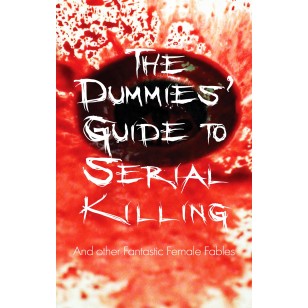Nowadays, we are used to watching crime shows on the television and witnessing up-to-date forensic techinques. Invaluable though these programmes are for the modern crime writer, how does the writer of historical crime help his medieval investigator find the killer?
The biggest weapon in the medieval investigator’s armoury is the ignorance of the killer. He won’t realise the marks left by his feet or hands reveal his identity. That said, the detective must use his five senses much more than modern-day detectives. Our detective might see blood on someone’s clothes although they won’t be able to tell if it is human or animal, but, unless he is a butcher or flesher, that blood is a pointer towards further investigation. Or perhaps he finds a torn piece of leather, or sees a stain that shouldn’t be there.
However, it is in the less-used senses that the medieval detective must find most of his answers. The smell of someone’s breath or an odour emanating from a suspect’s/victim’s clothes, or the last dish eaten by the victim, tasting the dregs left in a beaker, or touching the body to try and calculate how long the victim has been dead. The senses must be used together, so the appearance of a body, along with how cold/warm it is, the state of blood found on or near the body and other odours coming from the victim, will add to the investigator’s knowledge of the circumstances of the crime.
When it comes to transport, we now have databases of wheel-patterns and vehicle characteristics, including the fibres from vehicle carpets. But how about when all you have are horses, wheeled carriages/carts, and people walking? Do any footprints look strange? Is there the mark of a split sole or that the sole of one shoe appears more worn down than the other indicating the killer walks with a certain gait? Size of footprints is key. If the investigator can find a shoe that fits the imprint… Again, the medieval killer probably won’t have the faintest idea his footprints left at the scene are shouting his name to the detective.
Horses and their gait may also help the detective deduce what happened at the crime scene. Was the horse walking, trotting, cantering or at a full gallop? Do the horseshoes have any unique markings on them? Where did that loaded cart go? We can tell it was loaded because of the depth of the wheel ruts and if one wheel was a bit loose, that, too, will show. The distance between wheels will tell our detective whether it was a common cart or a carriage. A carriage means the detective has to tread carefully because someone of high status is in the frame.
 |
| Due 2019 |
Many writers make their detectives apothecaries or healers because plants were – and still are – very important in crime detection. Nowadays, analysis of plants in tyre treads can tell investigators where a vehicle has been and lead the detective to the dump site. This was key in the 2005 murder of Joanne Nelson in Hull when analysis proved that the combination of plants in the suspect’s tyre treads pointed to only three places. Writers of medieval crime will often use the discovery of a plant near the scene of the crime, but the plant does not grow there. Finding where the plant does grow is a key indicator of where the killer has been and a lead to his identity.
Occupations in medieval times were much more physical than many are now and the detective will be on the lookout for pointers to a suspect’s job. Have the victim’s clothes any trace evidence? Sawdust, ink, stone dust, marks from what look like fingernails? These might point to a carpenter, a clerk, a mason or even a lute player. And, when questioning a suspect, the detective will look closely at their hands. Are there any defensive wounds from say, the victim trying to wrench the strangler’s hands away?
So writers of historical crime have to be a little more imaginative in their CSI clues, but that all adds to the fun.
You can read more about April Taylor here:



























